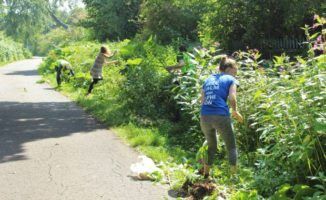

Books & Films
Sustrans Publishes Book on Paths as “Wildlife Highways”
The charity which created the National Cycle Network, Sustrans, has published a book on looking after traffic-free cycle and walking routes, for use by both wildlife and people.
The Greenway Management Handbook provides an introduction on maintaining hard and soft infrastructure along greenways, with advice about to improve the management of routes to create wildlife corridors too. The book, which is based on Sustrans’ 20 years of experience managing the National Cycle Network, is for anyone who manages cycle paths, bridleways, towpaths, disused railway corridors, forest roads or any other linear space.
Sustrans’ handbook provides practical advice and examples of best practice for local authorities, professional land managers, landowners and groups of volunteers, on the full range of issues when managing a traffic-free path for the public and nature.
In a step-by-step guide the Green Management Handbook features chapters on topics such as managing access, anti-social behaviour, signs and interpretation, as well as how to manage different habitats, problem species and path surfaces.
David Watson, ecologist at Sustrans said: “As more and more people take up cycling traffic free cycle paths are increasingly popular as commuting and leisure, but they also have great potential to become wildlife highways too. Nature needs paths to help connect habitats, particularly within built-up urban areas and good management practice helps to give wildlife a chance.
“For the first time Sustrans has published a Green Management Handbook which gives practical advice on all aspects of path management, including the wildlife and habitats alongside and around the route. If you are a land manager with a traffic-free path, this book will help ensure you’re doing everything you can to look after people and nature.”
Green Management Handbook was launched online this week here, with a limited number of copies available in hard copy.
The Sustrans Greener Greenways project is transforming 280km of traffic free greenways to help support both people and wildlife.
For more information or to request a hard copy, please email sarah.bradbury@sustrans.org.uk.


 Environment12 months ago
Environment12 months agoAre Polymer Banknotes: an Eco-Friendly Trend or a Groundswell?

 Features11 months ago
Features11 months agoEco-Friendly Cryptocurrencies: Sustainable Investment Choices

 Features12 months ago
Features12 months agoEco-Friendly Crypto Traders Must Find the Right Exchange

 Energy11 months ago
Energy11 months agoThe Growing Role of Solar Panels in Ireland’s Energy Future




























